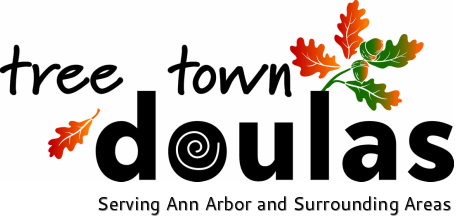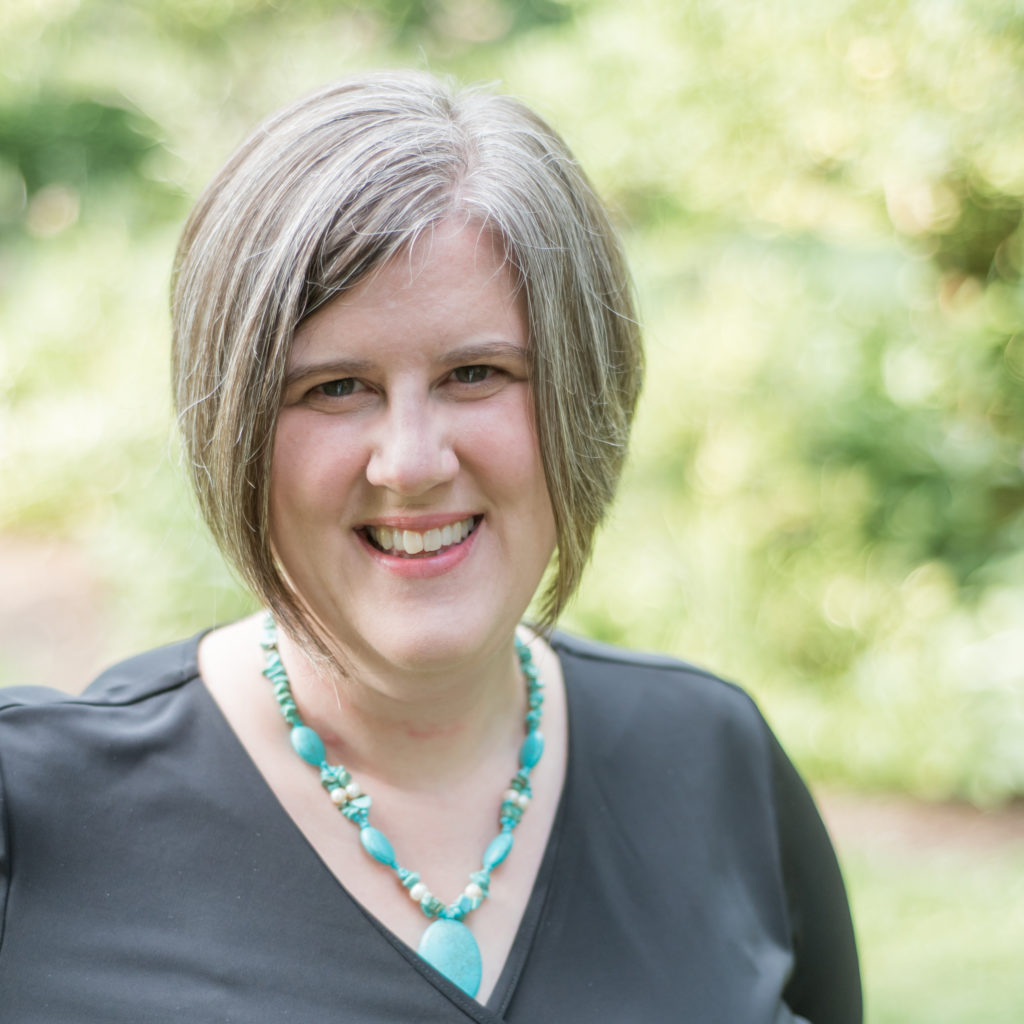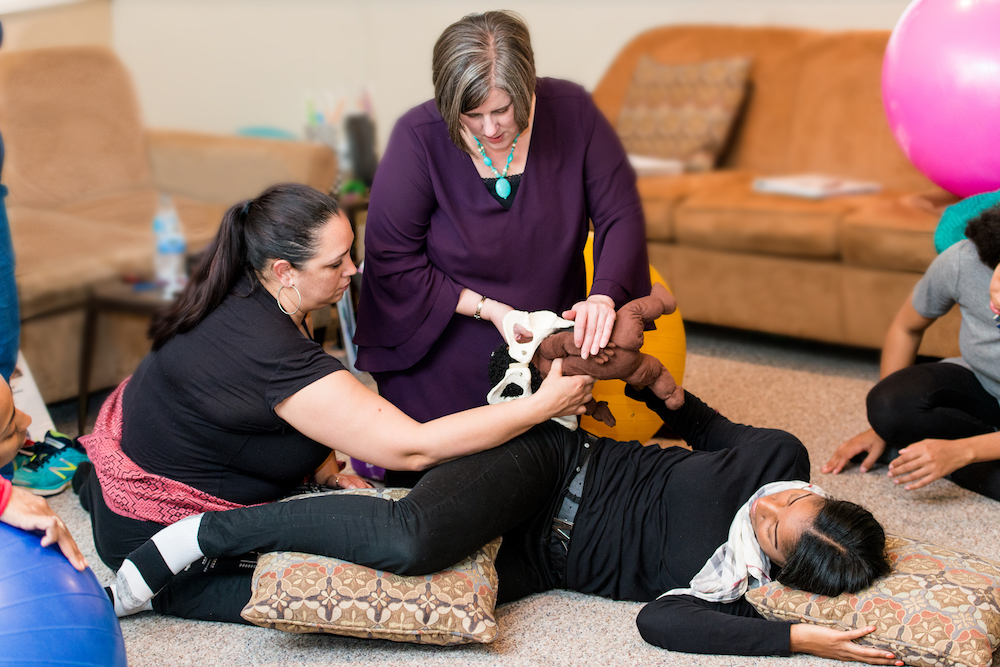COMMUNITY SPOTLIGHT: BIRTHWORK GALORE
On this lovely Thursday afternoon, we shine our Community Spotlight on the amazing Jessica English!!! If you’re looking for a birthwork super hero, you’ve pretty much found her! When she’s not running Birth Kalamazoo, she’s doing amazing work training doulas, childbirth educators, working as a doula, and advocating for parents in her community. So if you’re interested in any of these things, keep on scrolling! 🙂
Jessica English, AdvCD/BDT(DONA), PCD(DONA), LCCE, FACCE
Jessica English trains birth doulas for DONA International and childbirth educators for Lamaze International, traveling the country from Ann Arbor to Honolulu. She is one of just 48 advanced DONA birth doulas worldwide, and she still attends births and also cares for families as a postpartum doula. You’ll find her every Tuesday night teaching her 8-week childbirth class in Southwest Michigan, where she runs the state’s first and longest-running doula agency, Birth Kalamazoo. As a trainer, Jessica has also developed specialties in coaching doula agency owners and teaching hands-on labor support techniques to nurses. You can learn more about her trainings at heartsoulbirthpros.com or explore her agency at birthkalamazoo.com.
What brought you to support moms and babies?
Very simply, I had a great birth. After going through IVF and having this very high-tech conception with my son, I knew I wanted a low-tech birth experience. I did everything I could to stack my deck for my best chance at a great birth experience, including an independent childbirth education class, long walks every day, a midwife and a doula.
After my son was born (such a beautiful, straightforward, physiologic birth), my doula said to me at our postpartum visit: “You’ve had a birth experience not many people in our culture get to have. I want you to think about what you’re going to do to share that with other people.” I wasn’t sure where to go with that, because I had a great job in public relations at a university, and a new baby that I had no idea how to take care of. But her challenge stuck with me, especially as I connected to other new parents who were not having great births – actually, their births were often pretty traumatic.
I decided what I could do was teach, which seemed like a nice little sidelight in addition to my full-time job. I got trained and certified as a childbirth educator, and then my students started asking me to come to their births. That led me to train as a birth doula, which led me to… all the things. I’ve been doing this work for 14 years now, and I don’t miss university PR one bit. I’m so grateful I found my calling.
If there was one myth you could “bust”, what would it be?
I’d love to bust a couple of myths!
For birth professionals (or future birth professionals), let’s bust the myth that you can’t make a full-time living as a birth professional. I have trained so many doulas and childbirth educators who are absolutely thriving in their home communities. I love watching them each find their niche and develop their own unique mix of services. This is heart work, but it absolutely can be financially rewarding too. Even for those doulas who are called to exclusively support under-resourced parents, I’ve watched them found or join nonprofits that can support them while they support families.
For parents, I’m not sure if I’d call it a myth or a misconception, but I definitely see an assumption that if you just read enough, learn enough, practice enough, and hire the right doula, you can have a positive birth with any provider or any birth place. No! At least not unless you have a whole lot of luck working for you. The provider and birth place you choose will have an immeasurable impact on your birth experience, from the messages they send you about your ability to birth, to your risk of being induced or having a cesarean. And that doesn’t even address how you’re likely to be treated during your birth. I’ve seen such a huge difference in philosophy and approach among the providers in my area. If you want to know who the most respectful, patient and natural-minded providers are in your area, ask the doulas.
OK, actually, I have one more for parents… I think especially in the Midwest, we have this pull-yourself-up-by-your-bootstraps myth that families don’t need professional support postpartum. I understand that we are very capable here in the heartland, but new mamas and other parents need so much TLC — and not just for a few weeks, but for several months after birth. If we can take better care of the whole family, we can increase bonding and confidence, and potentially head off postpartum mood disorders. It’s not a badge of honor to talk about how terrible it was after your baby was born; it’s a tragedy, and it doesn’t have to be that way. I’d like to see people investing at least as much in birth and postpartum doula care as they might in their wedding or a new vehicle. Your birth and your settling-in time with your baby are 1,000 times more important.
You asked me for one myth, I hope you don’t mind that I gave you three. There are just so many myths that need busting!
What do you enjoy doing when not working?
I’m in a very busy work season of my life, but I also have two amazing teenage boys and a husband that I love to spend time with. I’m a travel hockey mom times two, which is great fun (and super intense). We also love to fish or do anything on the water, whether that’s summers in Michigan or spring break on one of the out islands of the Bahamas (I call it the “rural Caribbean”). I’m part of a sweet little book club that rarely reads books together anymore but still meets often. And I love a nice glass of cabernet or rosé.
What moment are you most proud of?
I’m most proud of the way my doula trainings have grown over the years. That’s not an exact moment, but a series of many moments, sharing my passion and seeing new doulas light up. It was a revelation to find that I have a unique talent for training adults, and it’s such a gift to me to help other people get started in this amazing field.
Tell us about something in your practice you would like everyone to know.
Informed choice (consent or refusal) is the legal and ethical right of every person giving birth. Childbirth educators should be teaching it, doulas should be supporting it, and providers should be practicing it — every time, for every parent (especially for black women and other women of color, who are even less likely to receive respectful care than everyone else). That’s the hill I’m willing to die on.


